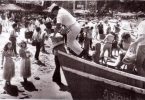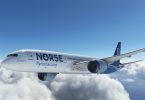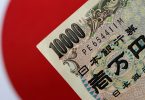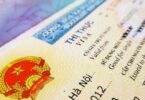Airline workers often sell the passes they receive as perks from their employers. Buying them can be a pain.
When Rick Schroeder and Jason Chafetz spotted the Internet post selling airline “buddy passes,” they thought they had found a bargain.
Airlines issue the passes as perks to employees, who use them or give them to friends and family to fly standby for a fraction of the normal cost. Schroeder and Chafetz would only have to pay taxes and fees on their flights, saving thousands of dollars on a planned July vacation.
The friends met their hookup, a US Airways customer-service agent, at Philadelphia International Airport last month and paid him $200 each, said Schroeder, of the city’s Fishtown section. They immediately applied the passes to round-trips to Germany for an additional $282 apiece.
Three weeks later, the pair’s plans had come undone, and their middleman refused a refund.
“I wouldn’t do this again,” Schroeder said last week.
Schroeder and Chafetz’s misfortune highlights a little-known problem that airlines say they are combatting daily: the national underground market in employee passes.
Though many transactions go undetected, airline-industry officials say they have derailed scores of sales in recent years. Some cagey travelers, including Schroeder, have even gone to airports looking for employees willing to make a deal.
Though not illegal, trading passes for cash violates company policies and may result in an employee’s dismissal.
“I know the airlines frown on this, but I’ve had airline managers actually help me get the passes,” reported Schroeder. “I’ve used passes about a dozen times.”
It’s “like ticket-scalping,” he said. “You see people across from the Wachovia screaming, ‘Want tickets?’ and the cops are standing right there doing nothing.”
David Stempler, president of the Air Travelers Association, a passengers’ rights group, said the Internet had made sale of buddy passes easier. Previously, fewer travelers had heard of the employee benefit.
But, Stempler said, “When you get into this world of gray zones, passengers have to be particularly careful.”
In its routine Internet sweep, US Airways security saw the same craigslist.org message that attracted Schroeder and Chafetz and tracked down the employee, whose name the airline would not reveal. It fired the agent and refunded the cost of the men’s tickets.
That left Schroeder and Chafetz, both 33, out what they paid the entrepreneurial employee, plus $230 each for nonrefundable train reservations from Munich to Prague.
“Carriers are closely monitoring their employees to avoid such fraudulent activities,” said David Castelveter, spokesman for the Air Transport Association, which represents most major airlines.
Sellers and prospective travelers frequently post messages on Internet sites seeking passes. Buyers also trawl online auctions such as eBay.
“I’m looking for a buddy pass from an American Airlines employee. . . . I can afford approx. $250,” wrote “Christine” in a typical post this month on Topix.com.
“OK, I’m not an American Airlines security personnel,” she added later.
Airline employees are given an allotment of passes that expire at the end of each year. US Airways workers receive eight – more than they may be able to use.
It might be tempting to turn extras into cash, but “if a stranger walked up to me and asked if I’d sell him a pass, I would say no,” US Airways spokesman Philip Gee said. If busted, “I could have all my passes pulled, or I could be terminated,” Gee said.
“It’s one of those things that happen from time to time at every airline, and newer employees may be susceptible to it,” he added.
There is also risk to the passenger, Gee warned.
Customers using passes do not have confirmed seats, he said. They are not put up at airline expense if a flight is canceled. Nor are they compensated for lost bags.
And travelers who obtain passes improperly are not reimbursed for passes if the transaction is discovered and their plane tickets are cancelled.
Schroeder and Chafetz, of Radnor, said they thought the US Airways agent with whom they dealt had done nothing illegal.
“We assumed that the guy didn’t have a lot of money and sold all his buddy passes as soon as he received them each year,” Schroeder wrote to US Airways officials.
Schroeder, an information-security engineer for the University of Pennsylvania Health System, and Chafetz, who owns a construction company, had hoped to upgrade to first class the day of their flight. The buddy pass ultimately could have saved them each about $3,500.
They discovered their tickets had been canceled when they noticed a refund on their credit-card bills. The airline had found their reservations by tracing the passes.
Schroeder said he returned to the US Airways terminal and learned that the employee who sold the passes – and whose name he no longer recalled – had been fired.
He and Chafetz were victims “through no fault of our own,” he wrote to US Airways officials. “All we’re asking for is to have our trip reinstated at the price we had planned on paying.
“I don’t think it’s fair to punish us for this employee’s dishonesty.”
Chafetz, interviewed on a business trip to Thailand, said he was “very disappointed” that the company declined their request.
“I think it’s [US Airways’] responsibility,” he said. “They should take the loss.”
But airlines officials say purchased buddy passes are simply another example of something that seems too good to be true – and is.
Carriers “are absolutely vigilant,” said Castelveter, of the Air Transport Association.
“Buddy passes are not designed for capital gains.”
فلائي. com






















